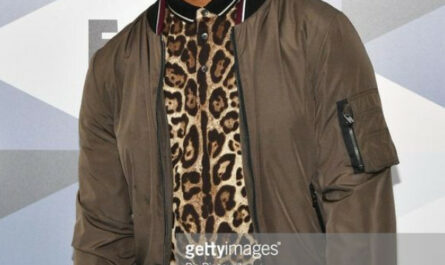Daniel Radcliffe’s journey from the halls of Hogwarts to the diverse landscape of cinema has been nothing short of remarkable. Beyond his iconic portrayal of the Boy Who Lived, Radcliffe has embraced a wide array of roles that serve as mirrors to some of the most pressing social issues of our time. From class and inequality to nonconformity and mental health, Radcliffe’s filmography offers a thought-provoking exploration of the complexities of the human experience. In this comprehensive analysis, we delve into the social themes embedded within Radcliffe’s diverse roles, highlighting the actor’s commitment to challenging societal norms and sparking meaningful conversations through his craft.
Class and Inequality: Exploring the Gulf Between Rich and Poor
One recurring theme in Daniel Radcliffe’s post-Harry Potter career is the exploration of class divisions and socioeconomic inequality. In “The Woman in Black” (2012), Radcliffe portrays Arthur Kipps, a young lawyer tasked with settling the estate of a deceased client in a remote English village. As he uncovers dark secrets haunting the dilapidated mansion and the impoverished villagers, the film shines a spotlight on the stark contrast between Kipps’ privileged upbringing and the harsh realities faced by those living on the margins of society.
Similarly, in the thriller “Now You See Me 2” (2016), Radcliffe’s character, Walter Mabry, serves as a symbol of wealth and privilege, contrasting sharply with the group of Robin Hood-esque magicians who use their skills to challenge the elite. Through his portrayal of Mabry, Radcliffe exposes the greed and corruption that often accompany unchecked privilege, inviting viewers to reflect on the systemic inequalities that shape our world.
Nonconformity and Identity: Embracing the Outsider Narrative
Daniel Radcliffe’s willingness to embrace unconventional roles and portray characters on the fringes of society speaks to his commitment to exploring themes of nonconformity and identity. In the surreal comedy “Swiss Army Man” (2016), Radcliffe plays a flatulent corpse named Manny who becomes the unlikely companion of a stranded man. Through the absurdity of Manny’s existence and his journey towards self-discovery, the film challenges notions of normalcy and celebrates the beauty of individuality.
In “Kill Your Darlings” (2013), Radcliffe takes on the role of real-life beat poet Allen Ginsberg, a figure whose life and work challenged the social and artistic norms of the 1950s. As Ginsberg navigates his burgeoning sexuality and finds his voice amidst a backdrop of artistic rebellion, Radcliffe delves into themes of self-expression, acceptance, and the pursuit of authenticity.
Mental Health: Destigmatizing the Conversation
Another area where Daniel Radcliffe’s filmography shines is in its portrayal of mental health issues with sensitivity and nuance. In the dark comedy series “Miracle Workers” (2019-present), Radcliffe portrays a low-level angel named Craig who works in the Department of Answered Prayers. Set against the backdrop of a chaotic and indifferent universe, the series explores themes of existential angst, societal pressure, and the search for meaning in an absurd world.
Through his portrayal of characters grappling with existential anxieties and inner demons, Radcliffe shines a spotlight on the importance of mental health awareness and destigmatizing the conversation surrounding mental illness. By confronting these issues head-on and portraying them with empathy and authenticity, Radcliffe continues to play a vital role in sparking conversations and challenging societal attitudes towards mental health.
Conclusion: Daniel Radcliffe’s post-Harry Potter career is a testament to his versatility as an actor and his commitment to using his platform to shine a light on important social issues. From class and inequality to nonconformity and mental health, Radcliffe’s diverse roles serve as powerful mirrors to the complexities of the human experience. As he continues to push boundaries and challenge audience perceptions, Radcliffe remains an indispensable voice in the ongoing conversation about the world we live in and the changes we aspire to see.



